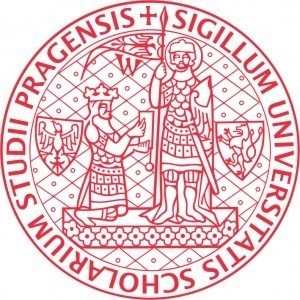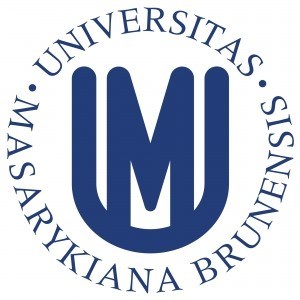Photos of university / #_charles.university_
Sociology in European Context at Charles University offers a comprehensive and interdisciplinary exploration of social phenomena, placing a particular emphasis on European societies, cultures, and institutions. This programme aims to provide students with a solid foundation in sociological theory, research methods, and analytical skills necessary to understand complex social processes. Students will engage with topics such as social stratification, inequality, migration, urbanization, social policy, and European integration, among others. The curriculum combines theoretical coursework with practical research opportunities, enabling students to develop critical thinking and methodology skills suited for diverse professional careers or further academic pursuits. The programme emphasizes understanding social issues through a European perspective, fostering a nuanced appreciation of historical, political, and economic contexts shaping European societies today. Students will benefit from the university's distinguished faculty, renowned for their expertise in sociology and European studies, as well as from partnerships with research institutions and organizations across Europe. The degree prepares graduates for careers in academic research, public administration, NGOs, international organizations, or the private sector, where understanding social dynamics is essential. Moreover, the programme encourages intercultural dialogue and multi-perspective analysis, equipping students with the competencies to analyze social change and contribute meaningfully to societal development within the European framework. Flexible study options and opportunities for international exchange make this programme ideal for students seeking a global yet regionally focused sociological education.
Course structure and study requirements
- Total Credits: 120 ECTS
- Compulsory Courses: 72 ECTS
- Elective Courses: minimum 36 ECTS
- Optional Courses: 12 ECTS
- Defence of Master's Thesis (Thesis evaluation form)
- Final State Examination (Topics for the Final State Examination)
Compulsory Courses
|
Code |
Title |
Lecturer |
Semester |
Term |
Examination |
Credits |
|
JSM421 |
Contemporary social theory |
Balon |
WS |
2/0 |
exam |
9 |
|
JSM692 |
Introduction to Social Research Metodology |
Remr |
WS |
2/2 |
exam |
9 |
|
JSM301 |
Elites in Society |
Frič |
SS |
2/0 |
exam |
9 |
|
JSM062 |
Borders and International Migration |
Grygar |
SS |
2/0 |
exam |
8 |
|
JSM406 |
Statistics in SPSS |
Soukup, Petrúšek |
WS/SS |
1/1 |
exam |
8 |
|
JSM693 |
Text, Narrative & Discourse Analysis |
Hájek |
SS |
1/1 |
exam |
9 |
|
JSM697 |
Diploma Seminar I |
Blokker, Numerato, Hájek |
SS |
0/2 |
pass |
10 |
|
JSM698 |
Diploma Seminar II |
Blokker, Numerato, Hájek |
WS |
0/2 |
pass |
10 |
Elective Courses
|
Code |
Title |
Lecturer |
Semester |
Term |
Examination |
Credits |
|
JSM477 |
Sociology of Critique |
Blokker |
WS |
2/0 |
exam |
8 |
|
JSM476 |
Sociology of Human Rights in Contemporary Europe |
Blokker |
SS |
2/0 |
exam |
8 |
|
JSM032 |
Applied Social Research |
Remr |
WS |
2/1 |
exam |
7 |
|
JSM095 |
Study of Political Mobilization and Social Movements |
Císař |
WS |
2/0 |
exam |
6 |
|
JSM103 |
Writing research project and paper in English I |
Blokker |
WS |
0/2 |
macc |
6 |
|
JSM108 |
Writing research project and paper in English II |
Blokker |
SS |
0/2 |
macc |
6 |
|
JSM311 |
Communications Research |
Jeřábek |
SS |
2/1 |
exam |
9 |
|
JSM312 |
Electoral, Market, Media and Social Research: Paul Lazarsfeld's Methodology |
Jeřábek |
WS |
2/1 |
exam |
9 |
|
JSM437 |
Civil Society in Transition |
Frič |
SS |
2/0 |
exam |
8 |
|
JSM016 |
Sociology of Science and Scientific Knowledge |
Maršálek |
WS |
0/2 |
exam |
8 |
|
JSM480 |
Evaluation Research |
Remr |
WS |
2/0 |
exam |
8 |
|
JSM628 |
European policies and practice towards ethnic minorities |
Mikes |
WS |
1/1 |
exam |
9 |
Recommended optional Courses
|
Code |
Title |
Lecturer |
Semester |
Term |
Examination |
Credits |
|
JPM239 |
Central European Politics |
Krausz Hladká |
SS |
1/1 |
exam |
6 |
|
JPM550 |
History, Politics and Culture of Central European Jewry |
Kubátová |
SS |
1/1 |
exam |
6 |
|
JSM034 |
Advanced Data Analysis in MPlus |
Soukup |
SS |
2/1 |
exam |
7 |
|
JSM518 |
Public Policy |
Potůček |
WS |
2/1 |
exam |
9 |
|
JSM519 |
Social Policy |
Kotrusová Angelovská |
SS |
2/1 |
exam |
9 |
|
JSM602 |
Health Policy |
Háva |
WS |
2/1 |
exam |
8 |
|
JSM604 |
Health Economics |
Háva |
SS |
2/1 |
exam |
8 |
|
JSM657 |
Welfare State, Austerity, and Political Parties |
Novotný |
WS |
1/1 |
exam |
8 |
|
JSM691 |
Policy Analysis |
Nekola Veselý |
SS |
2/1 |
exam |
9 |
- Completed application form
- Copies of all relevant diplomas and transcripts. Copies of diplomas and transcripts do not have to be certified. However, if you submit uncertified copies you must bring the originals of all submitted documents with you to Prague, so we can confirm their authenticity. If you have not yet finished your previous studies and thus do not have a diploma please submit a confirmation of studies including an information on the expected date of graduation.
- Short academic curriculum vitae (resume) detailing all relevant qualifications and experience
- Letter of motivation
- All students who are non-native English speakers must provide evidence of their competence in English corresponding to at least the C1 level, CAE, IELTS 7.0 and TOEFL over 95.
The Financing of the Sociology in European Context study program at Charles University is primarily funded through a combination of public and private sources. As a public university, Charles University receives substantial financial support from the Czech government, which allocates funds based on national education policies, institutional needs, and the strategic importance of social sciences. These governmental funds cover a significant portion of the program’s operational costs, including faculty salaries, research activities, and campus infrastructure. Additionally, the university benefits from European Union funding programs aimed at promoting higher education and research collaboration across member states. These funds support various academic projects, student mobility, and international partnerships related to the Sociology in European Context program.
Students enrolled in the program may also have access to a range of financial aid options, including merit-based scholarships, need-based grants, and mobility stipends, especially for participation in Erasmus+ exchange programs. Tuition fees for international students are set according to university regulations and may vary depending on the student’s country of origin; however, the university strives to keep fees competitive to ensure accessibility. Many students also finance their studies through part-time employment, internships, or external scholarships provided by private foundations or government agencies.
The university’s commitment to providing quality education in sociology is reflected in its investment in modern teaching facilities, digital resources, and research centers, all of which are funded through a mixture of public subsidies, project grants, and institutional revenue. The university actively seeks external funding through research grants from national and international sources, which further bolsters the resources available for the program. Overall, the financing structure of the Sociology in European Context program is designed to ensure high-quality education, support for student needs, and continued development of research excellence, leveraging a diverse range of financial sources to sustain its long-term objectives.
The Sociology in European Context program at Charles University offers students a comprehensive understanding of sociological theories, methods, and contemporary social issues within a European framework. The program emphasizes the analysis of social phenomena through a multidisciplinary approach, integrating insights from history, politics, economics, and cultural studies. Students explore the development of social institutions, migration, globalization, social inequalities, and European integration processes, enabling them to understand complex social dynamics across different European countries.
The curriculum includes core courses in sociological theory, research methods, statistics, and qualitative and quantitative analysis. Specialized modules focus on European society, policies, and regional diversity, providing students with both theoretical knowledge and practical skills applicable in various professional contexts such as research, policy analysis, NGOs, and international organizations. The program encourages critical thinking and interdisciplinary approaches, fostering an understanding of the diverse social fabric of Europe.
Students benefit from the university’s international outlook, participating in seminars, workshops, and exchanges with university partners across Europe. The program also offers opportunities for internships and field research, allowing students to gain valuable practical experience. Graduates of the program are equipped with analytical capabilities and cultural awareness necessary for careers in social research, public administration, and European institutions.
The program is designed for students interested in exploring social issues within a European context, aiming to prepare them for roles that require a deep understanding of social processes and policies affecting European societies today. The teaching staff comprises experienced scholars and practitioners committed to providing high-quality education and current research insights. Overall, the program offers an in-depth and broad understanding of European social realities, preparing graduates for diverse professional paths in an increasingly interconnected continent.





